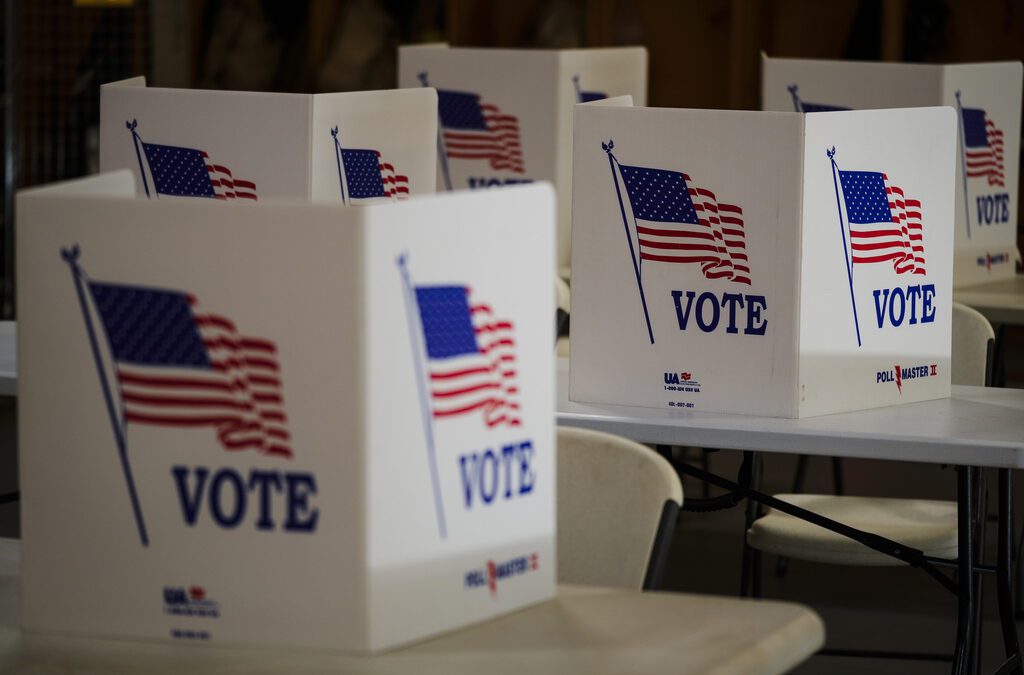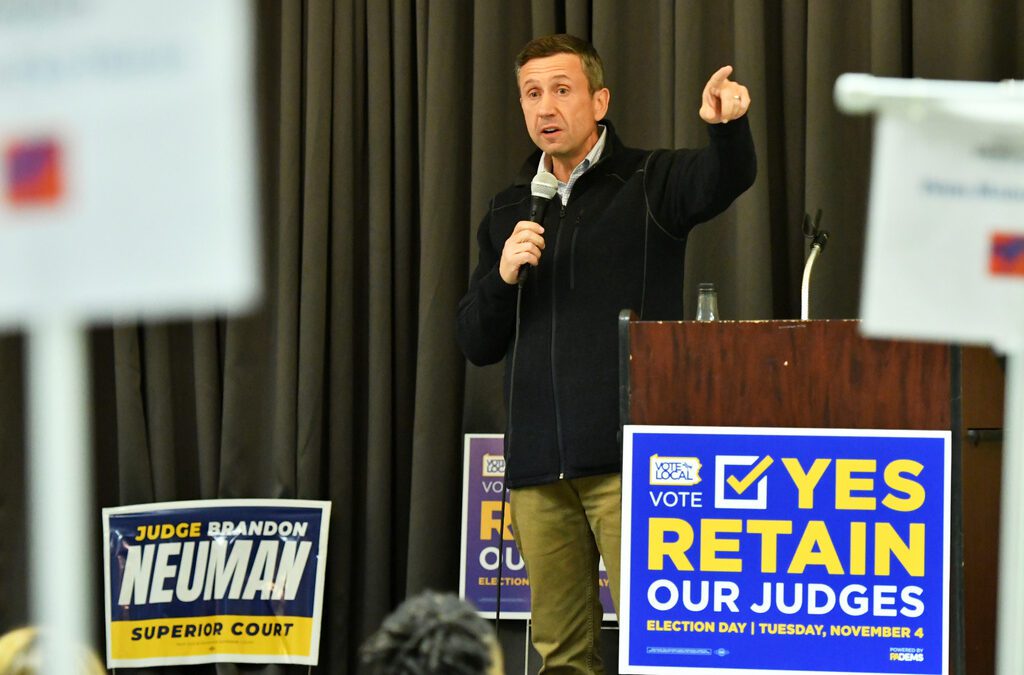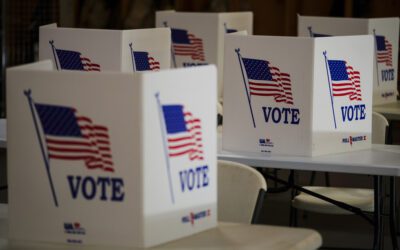
(Image via Shutterstock)
Pennsylvania law enforcement officials are investigating the calls, which provide false information about voting.
Pennsylvania voters recently have been getting robocalls telling them that mail-in ballots are not a secure way to cast a vote in the upcoming general election, or that personal problems they have might prevent them from voting.
The calls are illegal, officials said.
“These false, targeted robocalls are another desperate tactic to scare eligible Americans from participating in the election,” said state Attorney General Josh Shapiro in a news release. “Don’t listen to their lies — vote. We will protect every eligible ballot. All Pennsylvanians can be confident that voting by mail is safe, secure, and legal.”
Law enforcement officials are investigating the calls, and will prosecute callers who are violating the law.
Heading into the upcoming election season, you should feel confident in voting by mail.
More than 30 states have passed legislation to support voting by mail in both recent primaries and the upcoming general election, in which registered voters nationwide will elect the next President and Vice President of the United States. Each of the nation’s six swing states are among those that both allow and encourage mail-in voting. Some states, including Pennsylvania, differentiate between mail-in voting and absentee voting.
Any registered voter who requests a mail-in ballot from the Pennsylvania Department of State and returns it in time will be able to vote in the general election.
Mail-in ballots must be postmarked by the time polls close on Election Day, which is 8 p.m., and received by 5 p.m. on Nov. 6 (three days after Election Day).
The Keystone has a few tips to share to help you decipher those robocalls and prepare to vote on Nov. 3:
Know Your State Laws
Having outstanding credit card debt, being of a certain income status, or a past criminal record does not mean you are unable to vote.
Voter Identification at the Polls
In PA, only people who are voting at new poll locations or in new counties are required to show a state ID when they check in with poll workers to vote on Election Day..
If you have voted at your poll location before, you will not need to show identification on Nov. 3.
Voter ID was under review by PA courts in 2012 ahead of President Barack Obama’s second term. Ultimately, the law was struck down in 2014 in Commonwealth Court; the judge viewed the law as one that would add an unneeded burden on elderly, disabled, and low-income voters of color statewide.
Why Consider a Mail-In Ballot
The global health pandemic is still a grave concern for thousands of Pennsylvanians. More than 140,000 Pennsylvanians have contracted the novel coronavirus, and more than 7,900 have died from COVID-19 or another coronavirus-related condition, according to statistics from the state Department of Health.
If you are more comfortable voting by mail, it is safe to do so. Not wanting to go to the polls in person for health and safety concerns need not be a reason to abstain from participating in the general election.
When to Register to Vote by Mail
Anyone registered to vote in Pennsylvania can request a mail-in ballot. The deadline to register to vote in PA for the general election is Oct. 19.
If you choose to vote by mail, you should request your ballot as soon as possible. You can apply for a mail-in ballot online or at your county election office. The deadline to apply for a ballot for the general election is 5 p.m. on Oct. 27.
You can check the status of your mail-in or absentee ballot application here on the PA Department of State website.
Contacting Local Election Officials
A lot of the communications coming to voters via unauthorized robocalls is both intimidating and overwhelming.
If you are concerned that you will not be able to vote or you have questions about voting at the polls or by mail, you can contact your local county election office to learn more about your rights as a registered voter and participate in the November election.

History reveals Joe Khan, Bucks County’s DA-in-waiting, is a political anomaly
Voters have chosen Joe Khan as the latest of just a few Democrats to ever serve as Bucks County district attorney. Khan earned approximately 54% of...

Khan unseats incumbent Schorn in Bucks County district attorney race; part of ‘blue sweep’
A record-breaking Election Day turnout in Bucks County appears to have helped the Democrats claim key county row offices—ousting the incumbent GOP...

Pennsylvania reelects Supreme Court justices, extending a Democratic majority on its highest court
All three of the Pennsylvania Supreme Court justices who sought reelection Tuesday will get another term, ensuring Democratic jurists keep their...

Pa. is prepared for ‘incredibly important’ municipal elections, Secretary of State Al Schmidt says
Nearly 75% of 1.1 million mail-in ballots have been returned in election for judges, local officials. Election officials across Pennsylvania are...

Pennsylvania could keep its Democratic high court majority or get partisan deadlock on the bench
Pennsylvania voters on Tuesday will decide whether to keep a Democratic majority on the state’s highest court — the center of pivotal fights...




